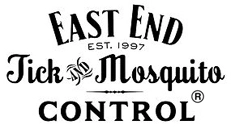It sounds like the plot of a horror movie: an innocent hiker is bitten by a bug, and suddenly they become violently ill every time they eat meat. Their skin erupts in hives, their throat swells, and they’re short of breath. It’s the stuff of nightmares.
As unsettling as it is, this scenario is all too real and is affecting a growing number of people each year. It’s called alpha-gal syndrome (AGS), a tick-borne condition that causes an allergy to alpha-gal… a sugar found in the tissues of most mammalian species. Only primates – which aren’t typically a source of human food – lack alpha-gal. AGS is spread through tick saliva (particularly after the bite of a lone star tick) and results in an allergy to meat, dairy, and other products derived from mammals.
Is Alpha-gal Only Caused By Tick Bites?
Alpha-gal syndrome is transmitted primarily through the saliva of lone star ticks. It may also be spread via the saliva of other tick species as well as berry bug (chigger) saliva.
What States Have Ticks With Alpha-gal Syndrome?
States with a large number of lone star ticks have the highest rates of AGS transmission. Unfortunately, over the past few decades, lone star tick habitat has expanded to include huge swaths of the country.
Alpha-gal syndrome is most prevalent in the mid-Atlantic, Midwestern, and Southern states, but thousands of cases have occurred outside of those areas – including right here in New York State. Alarmingly, Suffolk County has the highest AGS infection rate of any county in the United States, accounting for over 4 percent of cases nationwide.
What Foods Trigger Alpha-gal?
Any food derived from a mammalian species can trigger alpha-gal symptoms. Problematic foods include beef, pork, lamb, and other mammalian meats; dairy products like milk, cheese, and butter; and gelatin products.
Alpha-gal is more than just a food allergy. It is also found in many medications and supplements, including (but not limited to) collagen products, gelatin-coated pills, and anti-venom. An individual with alpha-gal syndrome may be unable to undergo a cow or pig heart valve transplant while they suffer from the condition.
What Are the Symptoms of Alpha-gal?
Alpha-gal reactions vary widely, ranging from mild to severe. Some infected individuals may have no symptoms at all, while others have life-threatening reactions.
AGS symptoms often manifest in the skin or mouth, causing hives, rash, and swelling of the lips, tongue, throat, and eyelids. Digestive symptoms include nausea, indigestion, heartburn, stomach pain, vomiting, and diarrhea. Serious reactions may lead to difficulty breathing, dizziness, fainting, and low blood pressure.
These symptoms typically occur between 2-6 hours after consuming meat or dairy, or following exposure to other products containing alpha-gal. Some individuals with severe alpha-gal allergies may experience an anaphylactic reaction directly after exposure. Anaphylaxis is an emergency, and medical care should be sought immediately.
How Do You Test for Alpha-gal?
Your physician or other healthcare provider can order an alpha-gal-specific allergy test to determine if you have AGS. A blood draw will be taken, and an IgE allergen component test will indicate whether or not you have the condition.
Does Alpha-gal Ever Go Away?
For some affected individuals, symptoms of alpha-gal may ease or go away altogether over time. Provided they don’t experience further exposure from subsequent tick bites, many can consume mammal-based foods again after a year or two.
What Are the Odds of Getting Alpha-gal?
The odds of contracting alpha-gal depend on your location, the number of ticks present in the area, the amount of time you spend outdoors, and the precautions you take to avoid tick encounters and bites. The prevalence of alpha-gal is much higher than previously thought… particularly in this part of Long Island. So, protecting yourself from tick threats is crucial.
Protecting East End Families from Tick Threats
East End Tick & Mosquito Control® takes your health and safety seriously. We have more than 20 years of experience providing local families year-round protection from tick threats. Contact us online for a free quote, or call (631) 324-9700 in East Hampton; (631) 287-9700 in Southampton, or (631) 765-9700 in Southold.


